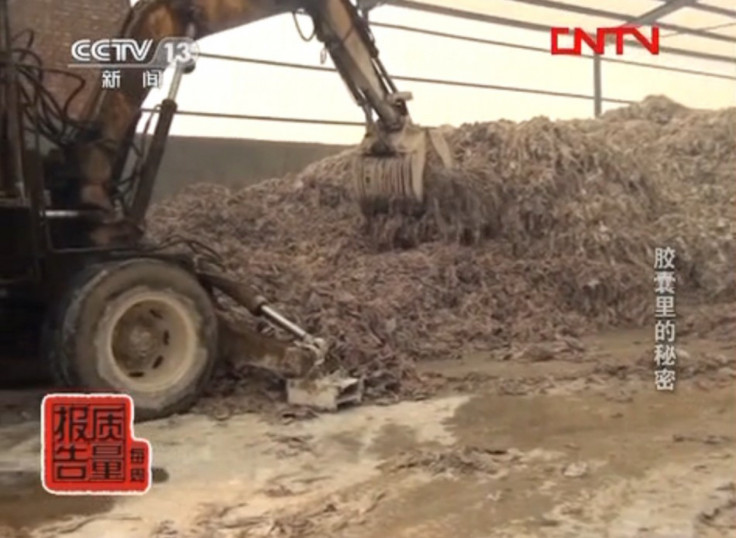Dangerous Medicines Exposed In China
ANALYSIS

Chinese police arrived at a factory Monday morning to find it ablaze. Black smoke was billowing out of the compound's white administrative building, and the sounds of explosions rang out. Hours later, after the flames had been tamed and investigators had entered the building, police revealed that Hebei Province's Xueyang Gelatin Factory had been a victim of arson, shockingly, by the plant's own manager.
In a bid to destroy evidence and data files that would implicate the factory and himself, plant manager Song Xingjie had ordered workers to collect together office computers and damaging files. He later set the fire to erase evidence of wrongdoing. Song soon fled and went into hiding, but was quickly captured by police.
What would compel a man to burn down his own factory?
Perhaps unsurprisingly, the factory in question was the origin point for a supply chain of faulty products. In China, a country used to stories and reports of defective manufacturing and poor practices, this fact alone would have raised few eyebrows.
What captured the attention of the entire nation, however, was over what the company produced, how it went about doing it, and who it ultimately supplied.
Disturbingly, the plant had been using grotesque collections of old shoe leather and wasted bits of leather straps to create the gelatin powders which would later be shaped into medicinal pills for human ingestion.
As it turns out, the Xueyang Factory was at the heart of a web of companies which supply and sell gelatin protein-based capsules for 13 different types of medicines for treating everything from fever and headaches to coughing and upset stomachs. Testing revealed that capsule shells produced by nine companies across multiple provinces held dangerous concentrations of heavy metals -- in some cases up to ninety times higher than the maximum levels deemed safe for human consumption.
In a country already overly sensitive to environmental degradation, air pollution, food safety, and concerns over personal health, this recent occurrence not only raised eyebrows, it caused outrage and indignation.
Rotten and filthy strips of leather discarded from shoe factories and textile producers had been collected, treated with lye, bleached, and boiled until they resembled some thick paste.
Chinese journalists working for the country's central television network originally began looking into the case over half a year ago, visiting medicine plants in Zhejiang Province and interviewing workers there about their practices. Tracing back supply chains, sometimes halfway across the entire country to their points of origin, the reporters discovered that plants were using deceptively and disarmingly labeled blue leather to hide the true nature of the gelatin and protein powders they used for making medicinal capsules.
The Chinese government forbids using waste leather in producing gelatin, and like many other countries, only allows protein safe for consumption to be used in preparing components used for medicines. The factories in question had not only ignored established laws, they had actually stamped on their own seals of approval and inspection before shipping out products to clients.
Through highlighting this particular case and other prominent issues, news agencies and investigative journalists in China have revealed an increasingly ability to influence and shift national debate, direct discussion of important social issues, and act as a force for upholding social justice and moral behavior.
The speed and eagerness with which 'netizens' have picked up on the scandalous incidents is also an indication of the increasing appetite of average Chinese citizens for such controversial news stories.
The government is no doubt concerned about these trends, and has given warnings on perpetuating damaging rumors.
This particular incident is of course, no simple rumor and will be hard to ignore as yet another wake-up call for improving industrial standards in China.
In the meantime, citizens will have to remain in limbo and hope that police, press, and politics can work together to clean up the system and root out criminal practices.
As is a common in the country, popular new jokes and black humor have already been invented to alleviate tensions and soften attitudes.
Feeling sick? asks a friend. Go lick a shoe, follows the punchline.
© Copyright IBTimes 2024. All rights reserved.











